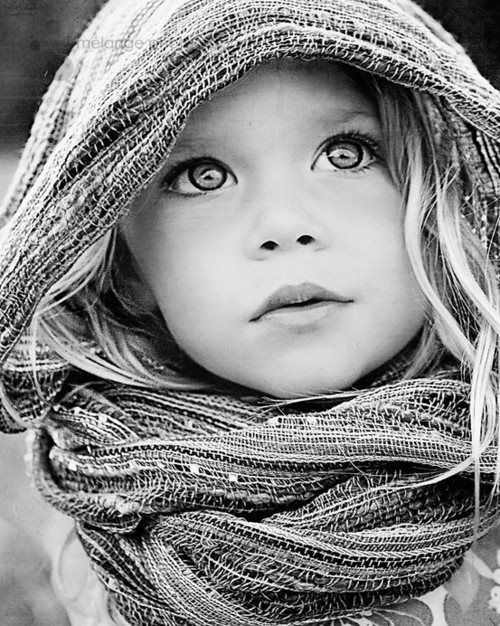Perhaps in part because I haven’t had children, I recoil when I hear a parent say something like, “kids questions reflect that time between innocence and experience.”
 As if innocence is something we only have as children, and parents must resign to it being lost in young people, and themselves.
As if innocence is something we only have as children, and parents must resign to it being lost in young people, and themselves.
I often wonder why people have children in a culture and world like this. I used to think it might be insurance for old age. But now I think it is to bring life and innocence back into their lives. The problem of course is that without protecting innocence within themselves, parents and teachers destroy innocence in children.
A mother who made a short documentary about her precocious little girl’s questions cited a line a line from a T.S. Eliot poem: “This is one moment,/But know that another/Shall pierce you with a sudden painful joy.”
The documentary is set in barren gravel pit to dirge-like music. In the piece that accompanies it she says, “Seeing the world again through a child’s eyes is full of paradoxical moments of ‘painful joy.”’
Why is the joy painful? Is it because the child is pointing at things that the parent refuses to address, and instead makes adorable moments of them?
The pain is the sorrow behind young children’s answered questions. Not their sorrow (not yet anyway), but ours.
Some of the questions her little girl asks are the charming kind that most kids do. They have answers in knowledge that an attentive parent or teacher can give. For example: “Why does the heart beat? Do blue butterflies eat part of the sky? Why do birds fly away? Why does food turn to poop?”
Other questions are important ones that adults need to address but rarely do sufficiently. “What is mean and nice? What is kind? Why do we eat animals? Why does everybody not like pink, just black?”
Finally, there are deeply philosophical questions that have been asked by people for thousands of years. They’re not answerable in knowledge. Children, and adults, should never stop asking them.
“Why are we humans? Why is the world so messy? What does extinct mean? What is power? What is history?”
Her mother declares: “Kids are endlessly curious and ask about how life works, the ineffable mystery of it, all the time…one day the flow of questions will stop, but of course even as adults we’re still searching for the answers.”
Why does the flow of questions stop? Why are adults searching for the answers when they have stopped asking the questions?
These are of course the kinds of questions a child might ask, which is why many adults are annoyed when an adult asks them. Best to ignore the questions and the adult foolish enough to keep asking them, until they go away.
The author, Kelly O’Brian, intimates why she and so many other adults stop questioning. “Sometimes I wish I could approach the world through a less personal perspective, but I can’t.”
Why not? Is it the culture? Human nature? The educational system? The entertainment/media complex?
I think it’s mainly because to keep asking questions entails coming from the feeling “I don’t know.” We are thoroughly conditioned to believe that an adult knows, or at least acts like she knows.
In truth self-knowing involves continually questioning one’s motivations and states, never thinking, ‘I know myself.’
Serious questions often have an element of disturbance in them, and most adults view disturbance as a negative emotion, rather than the positive virtue it actually is.
Finally, to keep questioning one has to be willing and able to live with an uncomfortable degree of uncertainty, both in general and about oneself.
Emotions and psychological conditions are constantly changing. Yesterday I may have been clear and confident, but today I’m anxious and sad. Gently but insistently one asks, why am I feeling anxious? What am I reacting to?
Whether in the philosophical or personal domain, you’ll find that if you authentically ask a question, and both hold it and let go of it, often an insight will suddenly emerge while you’re doing something else.
This is how we grow in understanding. No matter what one experiences, innocence is not lost if one doesn’t stop questioning. Can we live that way, and convey it to children?
“In the world of things as they are,
there is no self, no non-self.
There is no here, no there;
infinity is right before your eyes.”
Seng-Ts’an ~600 AD
Martin LeFevre
Link: https://www.nytimes.com/2017/03/21/opinion/how-does-life-live.html

